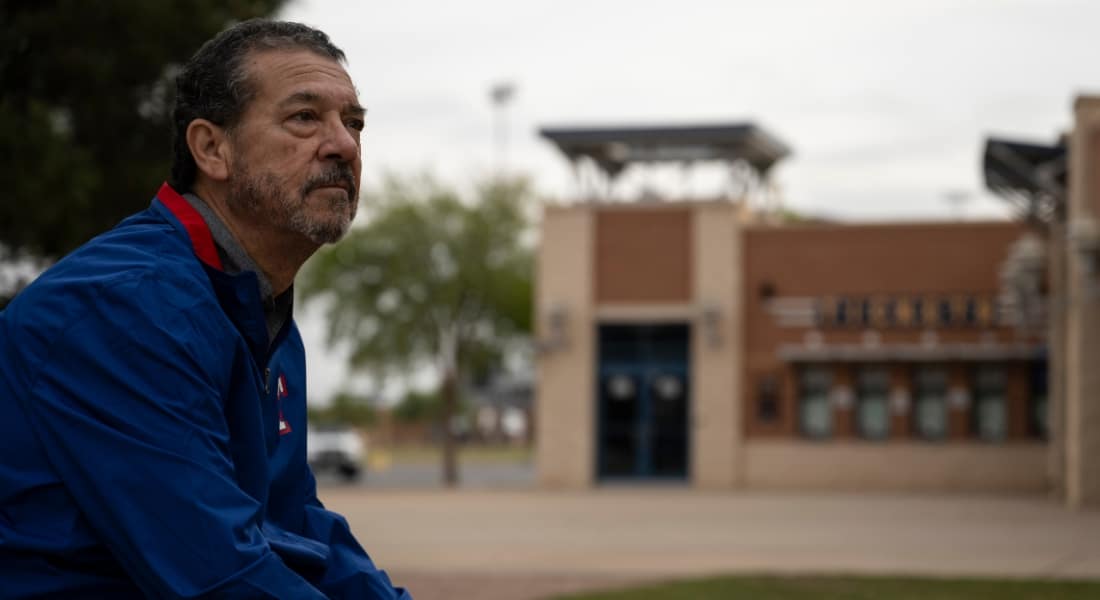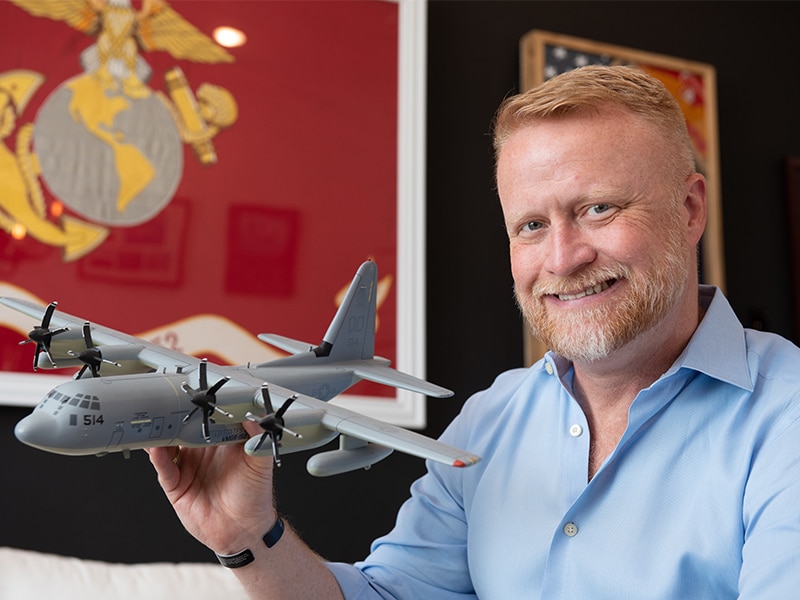Hilario Fuentes traveled far from his West Texas home to find hope that he could beat stage IV esophageal cancer, the same disease that took his mother’s life.
Now cancer-free, Hilario returned to work full-time last fall, two years after being forced to retire early so he could undergo chemotherapy and, ultimately, surgery at Methodist Richardson Medical Center.
“I couldn’t walk or swallow food,” says the 64-year-old, who works as a maintenance supervisor at a private school in Midland. “The staff at Methodist Richardson gave me hope. They worked magic.”
Not every hospital would have welcomed a patient like Hilario for three months of treatment at the height of the pandemic, when so many beds were full with COVID-19 patients. That’s what sets Methodist apart, says D. Rohan Jeyarajah, MD, FACS, director of gastrointestinal services and program director of the hepatopancreaticobiliary surgery fellowship at Methodist Richardson.
“We were able to say yes and create space for a patient despite our challenges and needs at that point,” Dr. Jeyarajah says.
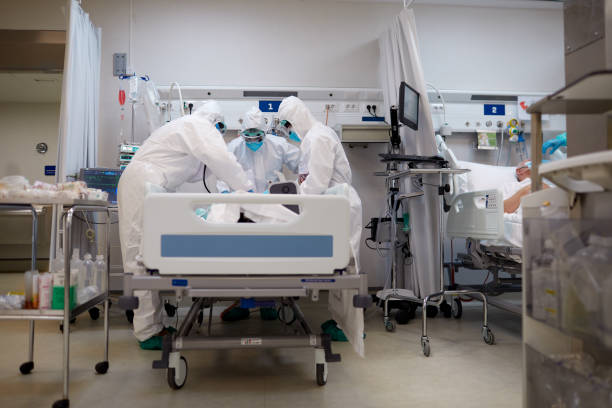
Hilario was transferred between West Texas hospitals because he got sick during the height of COVID-19.
SICK DURING COVID-19 SURGE
Hilario has made a dramatic recovery since paramedics delivered him to a hospital in fall 2021 in desperate need of a blood transfusion.
“My blood level had dropped so low,” he recalls, “the guy in the ambulance looked at me and said, ‘Man, I don’t know how you’re still alive.’”
That was when Hilario knew he had to find help fast.
Hilario first began feeling the effects of his tumor in 2018, shortly after losing his mother to cancer. Like her, he had trouble swallowing, but an exam showed nothing in his upper esophagus.
“They were looking in the wrong place,” he says. “What I had was down closer to my stomach.”
By October 2020, the fatigue had gotten worse, and his colleagues at the school where he worked had to call an ambulance.
“I was trying to deliver packages to teachers,” he recalls, “and after five minutes I had to stop and sit down. I realized then there was something not right.”
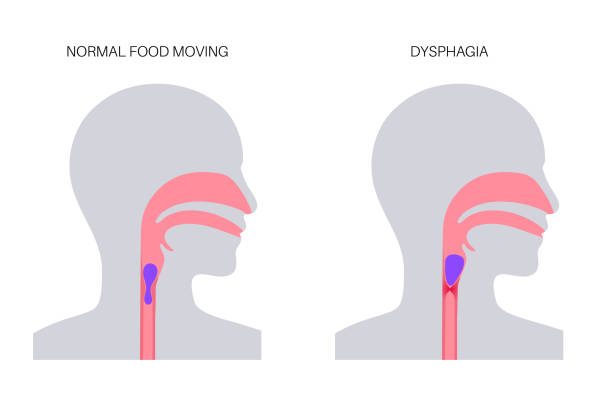
Patients with cancer of the esophagus often find it difficult to swallow food, a condition known as dysphagia.
FINDING LIFELINE TO DFW
At the time, there was no room for Hilario in the Midland hospital because COVID-19 was at its height, so he was taken to Odessa. Once there, a doctor delivered the news he was dreading.
“The doctor sat in front of me and just said: ‘You’ve got cancer,” Hilario says. “There was no sugar-coating. There would be no cure, he told me, just chemo to contain it.”
Back in Midland, Hilario was reunited with the oncologist who treated his mother. That doctor suggested Hilario seek help from a hospital 350 miles away: Methodist Richardson.
“By then I couldn’t work anymore, so I had to retire,” Hilario says. “I started making arrangements because I didn’t think I was going to live past 2021. But God and his grace had other plans for me.”
At Methodist, we don’t just focus on your cancer. We care for you as a whole person. Learn more at MethodistHealthSystem.org
PUSHING THE ENVELOPE
So in October 2021, Hilario was transferred to Methodist Richardson. By then the cancer and chemo had taken a toll on his body.
“I dropped from 260 pounds to 170,” he says. “I was having episodes of weakness and fatigue and lost so much blood I needed multiple transfusions.”
But he found hope in Dr. Jeyarajah and his team, who were focused on what could be done to help their new patient overcome his situation.
“In cancer work, we’ve gone from following algorithms to a more nuanced, personalized approach to treatment,” Dr. Jeyarajah says. “That allows us to look at a case like Mr. Fuentes and say, ‘Let’s push the envelope.’”
That fall, Hilario underwent a surgery, known as an esophagectomy, to remove the tumor from his esophagus and reconnect what was left to his stomach. Unlike his mother’s disease, Hilario’s cancer had only spread to a single lymph node, which was treated with radiation.
“Each patient is different,” Dr. Jeyarajah says, “Even at the same stage, it can be different. So we try to explain to patients who have lost a loved one to the same disease that the outcome also can be different. That’s why we offer such personalized care.”
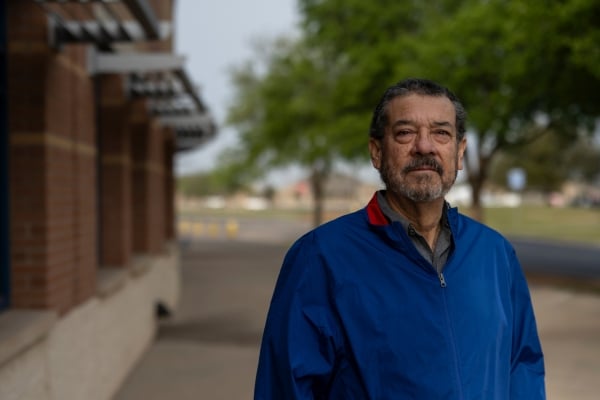
Hilario has returned to working full-time, and he’s back to rooting for the baseball team in Midland.
IT TAKES A TEAM TO SAVE A LIFE
For the next three months, Hilario would recover at Methodist Richardson, under the care of Dr. Jeyarajah and his staff at the Methodist Richardson Cancer Center.
“As a high-volume center for hepatobiliary and foregut disease, we depend on every single member of the team to treat complex patients like Mr. Fuentes,” Dr. Jeyarajah says. “That includes the intensive-care doctors, radiologists, anesthesiologists, and our highly skilled nursing staff, as well as the environmental services team who keeps the rooms clean.”
At the end of 2021, Hilario was cleared to return home to Midland after being declared cancer-free. By then, he says, he had earned a nickname from his doctor and the staff: “Miracle Man.”
“All that time, Dr. Jeyarajah and his staff encouraged us. My wife and I grew very fond of them all,” Hilario says.
Now back to working full time and eating whatever he wants, Hilario says he’s a walking and talking testament to the cancer care offered at Methodist Richardson.
“I share my story and adventure with other cancer victims to give them hope, too,” he says.

